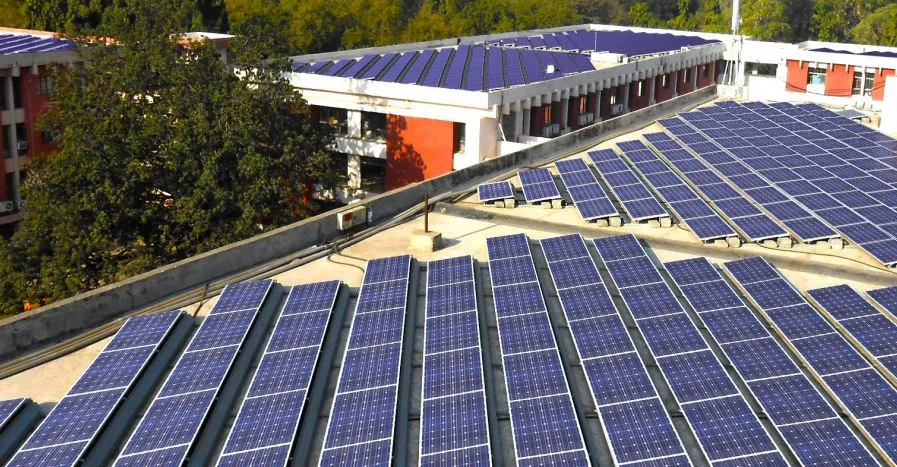
India's GST launched but clarity still missing for the solar sector: analyst
Operational clarity is "lacking in practice".
Three days into implementation of the Goods and Services Tax (GST), Indian solar industry continues to face uncertainty regarding GST rates, according to Bridge to India. GST will be applied to solar modules at a concessional rate of 5%.
Central government officials including the Minister for Power, Piyush Goyal, have confirmed on multiple occasions that the 5% concessional rate will extend to all equipment for solar power generating plants. But operational clarity for these other capital goods used in solar projects is lacking in practice.
There is confusion in the market on how to avail of the concessional 5% GST rate when many of the same components are taxed at higher rates for use in other industries. MNRE is still working to evolve a mechanism in consultation with Ministry of Finance to try and resolve this issue.
Here's more from Bridge to India:
Net increase in project EPC costs is expected to be around 6% if the issue is not resolved. We spoke to four inverter suppliers today – two of them said that the GST rate for inverters is 18%, one said that it is 5% and another one said that that it is 5% for end-users and 18% for EPC companies.
The reason for the rate confusion is that it is not clear how to avail of the concessional 5% GST rate – as defined and intended under chapter 84 of the rate schedule for goods – when many of the same components are taxed at higher rates for use in other industries. For example, transformers used for solar projects are intended to be taxed at 5% but they are taxed at 18% for other applications. In the absence of any specific notification for solar projects, GST rate varies from 18% for capital goods such as inverters and module mounting structures to 28% for cables and batteries.
We understand that MNRE is still working to evolve a mechanism in consultation with Ministry of Finance to try and resolve this issue. Almost 10 GW of India’s pipeline solar capacity is impacted by increase in indirect tax rates under GST and lack of clarity adds to the complexity. If all capital goods for solar projects are taxed at 5% rate, we expect overall increase in EPC cost at around 3%. If, however, only modules are taxed at 5% and other capital goods are taxed at rates between 18-28%, the net increase in EPC cost is expected to be around 6%.
With global solar module prices firming up this quarter due to extension of solar FIT deadline in China, GST comes at an unfavorable time for the sector. We expect project delays and cannot rule out the risk of litigation between project developers and DISCOMs over sharing of the additional cost burden. Adverse impact will also be felt in the rooftop solar market, where we expect market activity to slow down in the near future.








![Cross Domain [Manu + SBR + ABF + ABR + FMCG + HBR + ]](https://cmg-qa.s3.ap-southeast-1.amazonaws.com/s3fs-public/styles/exclusive_featured_article/public/2025-01/earth-3537401_1920_4.jpg.webp?itok=WaRpTJwE)
![Cross Domain [SBR + ABR]](https://cmg-qa.s3.ap-southeast-1.amazonaws.com/s3fs-public/styles/exclusive_featured_article/public/2025-01/pexels-jahoo-867092-2_1.jpg.webp?itok=o7MUL1oO)









 Advertise
Advertise


